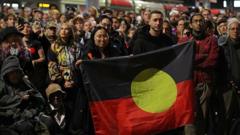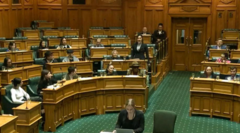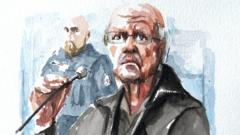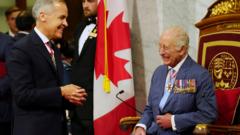The Australian Senate has officially censured Senator Lidia Thorpe for heckling King Charles during his visit, as she voiced her dissent against British colonialism. Her actions, aimed at highlighting the struggles of Indigenous Australians, sparked both criticism and support.
Australian Senator Faces Censure After Heckling King Charles
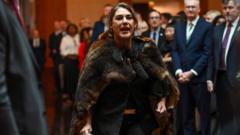
Australian Senator Faces Censure After Heckling King Charles
Lidia Thorpe's protest against British colonialism during the King's visit to Australia draws censure from lawmakers, igniting a debate on Indigenous rights.
Australian Senator Lidia Thorpe has faced backlash after heckling King Charles during his visit to Canberra, leading to a formal censure from the Senate. As the King addressed lawmakers in the Great Hall of Parliament, Thorpe shouted, "you are not my King" and "this is not your land," intending to draw attention to the consequences of British colonisation. The Senate's censure motion, which passed with a 46-12 vote, condemned her actions as "disrespectful and disruptive," stating that they should disqualify her from any parliamentary delegation.
The censure carries no legal weight but serves as a political rebuke. Following the Senate's decision, Thorpe expressed frustration over being unable to address the chamber due to a delay in her flight. "The British Crown committed heinous crimes against the first peoples of this country... I will not be silent," she asserted, underscoring her ongoing commitment to Indigenous rights.
While her protest was met with widespread criticism from peers and certain Indigenous leaders, it also resonated with activists advocating for recognition of the historical injustices faced by Aboriginal and Torres Strait Islander peoples. Despite the uproar, King Charles was largely welcomed by the public during his five-day tour, with Prime Minister Anthony Albanese acknowledging the complex relationship between Australia and the Crown.
Thorpe, a prominent figure in Indigenous activism, previously made headlines for her outspoken criticisms of colonialism, including referring to Queen Elizabeth II as a coloniser during her swearing-in ceremony in 2022. Last year, Australia rejected a referendum aimed at granting constitutional recognition to Indigenous peoples—a decision that fueled a contentious debate.
Despite data indicating a majority of Aboriginal and Torres Strait Islander voters supported recognition, segments of the community, including Thorpe herself, criticized the initiative as insufficient, labelling it tokenistic. As the conversation around Indigenous rights continues, Thorpe's actions keep the spotlight on the ongoing challenges faced by Australia's first inhabitants.



